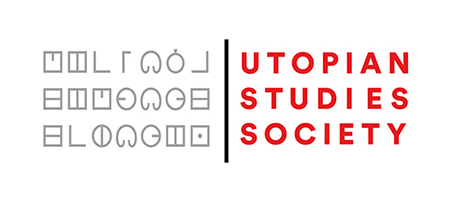What is the Utopian Studies Society?
The Intellectual Impulse
Utopian thinking is a necessary,often compulsive, human pursuit. Rooted in the capacity to dream, the quest for a utopia encourages one to re-invent reality and question the soundness and steadfastness of what surrounds us. The dystopian aspect of the tradition can offer valuable warnings and appellative impulses, opening our minds to the threats of the various abuses of power. Academics working on utopias take up the challenge of gathering all the various manifestations of fantasized and actualized alternative communities across the ages, reflecting and systematizing the knowledge of this vast field of studies.
History
The Society was established in 1988 by a group of British scholars, following an international conference on utopianism at New Lanark, which in the early nineteenth century was managed by the founder of British socialism, Robert Owen.It was re-launched, following the “Millennium of Utopias” conference at the University of East Anglia in June 1999.The invaluable Lorna Davidson and Jim Arnold of New Lanark Trust served for many years as Secretary and Treasurer of the Society.
The Academic Community
We are an interdisciplinary academic community that aims to co-ordinate and encourage the diverse work currently taking place on the subject of utopianism in the disciplines of literature, philosophy, sociology, history, architecture, politics, ecology, anthropology, film, media and computer games.
We convene annually at the beginning of July in various European locations – Britain, Ireland, Spain, Portugal, Poland, Cyprus, The Czech Republic, Italy. Our conferences are always large events with notable key-note speakers which provide an opportunity to meet some of the great names among utopian scholars, network and get to know academics worldwide with shared interest in the study of utopianism.
Our goal is always to work and think together despite differences in a welcoming atmosphere of openness, respect, inclusivity and dialogue which we deem particularly desirable given the universal context of academic competitiveness.We aim to promote a special community of scholars bonded by friendship and mutual interest in promoting our subject.
Our code of conduct and some rules for panel organizing and chairing
* The EU defines sexual harassment as taking place when “any form of unwanted verbal, non-verbal or physical conduct of a sexual nature occurs, with the purpose or effect of violating the dignity of a person, in particular when creating an intimidating, hostile, degrading, humiliating or offensive environment”.
Utopian Studies Society (Europe) Anti-Discrimination Policy
The Society is committed to promoting equality and respect amongst all its members irrespective of national, racial, ethnic, or gender origin and/or identity, or age, appearance, or state of health. Its meetings are open to all, and hostility towards or prejudice against anyone expressed in terms of these issues will not be tolerated.
The Society also encourages the promotion and protection of minority and other rights at its meetings by presentations and discussions, provided these do not involve antagonism towards or the exclusion of other groups.

